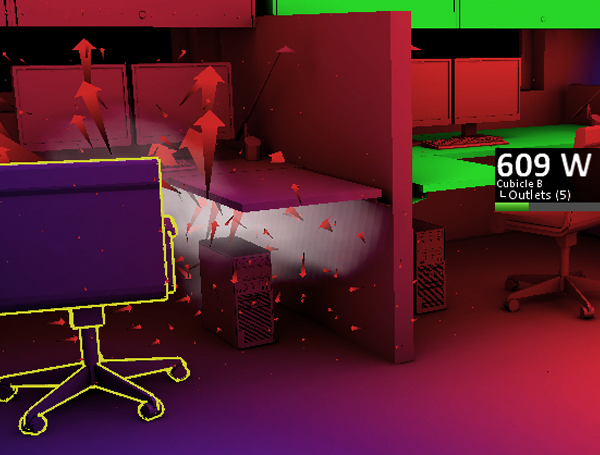Building Performance
Buildings do not perform very well in terms of energy efficiency, occupant comfort, or embodied energy. To increase building performance, we explore a number of factors and how they interact. Measuring real or simulated building performance will be an important part of generative design for moving toward net-zero buildings.
<< Topics
Shahmansouri, N., Goldstein, R., Javid, F., Tessier, A., Breslav, S., Khan, A. (2020). Building Performance Analysis Conference and SimBuild co-organized by ASHRAE and IBPSA-USA 2020. pp. 574-582.
Simulation-Based Architectural Design
Goldstein, R., Khan, A. (2017). Simulation-Based Architectural Design. Guide to Simulation-Based Disciplines: Advancing Our Computational Future. Springer. pp. 167-182.
Towards Voxel-Based Algorithms for Building Performance Simulation
Goldstein, R., Breslav, S., Khan, A. (2014). Towards Voxel-Based Algorithms for Building Performance Simulation. eSim 2014 Conference Proceedings: IBPSA-Canada eSim Conference. 14 pages.
Development of Discrete Event System Specification (DEVS) Building Performance Models for Building Energy Design
Huseyin, B., O’Brien, L., Goldstein, R., Breslav, S., Khan, A. (2013). Development of Discrete Event System Specification (DEVS) Building Performance Models for Building Energy Design, SimAUD 2013 Conference Proceedings: Symposium on Simulation for Architecture and Urban Design. 8 pages.
Using General Modeling Conventions for the Shared Development of Building Performance Simulation Software
Goldstein, R., Breslav, S., Khan, A. (2013). Using General Modeling Conventions for the Shared Development of Building Performance Simulation Software, Building Simulation 2013 Conference Proceedings: IBPSA-AIRAH Building Simulation Conference. 8 pages.
Simulating the Sensing of Building Occupancy
Breslav, S., Goldstein, R., Doherty, B., Rumery, D., Khan, A. (2013). Simulating the Sensing of Building Occupancy, SimAUD 2013 Conference Proceedings: Symposium on Simulation for Architecture and Urban Design. 8 pages.
Solutions for Scalability in Building Information Modeling and Simulation-based Design
Wang, S., Wainer, G., Goldstein, R., Khan, A. (2013). Solutions for Scalability in Building Information Modeling and Simulation-based Design, SimAUD 2013 Conference Proceedings: Symposium on Simulation for Architecture and Urban Design. 8 pages.
Real-Time Compression of Time Series Building Performance Data
Goldstein, R., Glueck, M., Khan, A. (2011). Real-Time Compression of Time Series Building Performance Data, Building Simulation 2011 Conference Proceedings: IBPSA-AIRAH Building Simulation Conference. 8 pages.
Lifecycle Building Card: Toward Paperless and Visual Lifecycle Management Tools
Graf, H., Soubra, S., Picinbono, G., Keough, I., Tessier, A., Khan, A. (2011) Lifecycle Building Card: Toward Paperless and Visual Lifecycle Management Tools. SimAUD 2011 Conference Proceedings: Symposium on Simulation for Architecture and Urban Design. 8 pages.
Toward a unified representation system of performance-related data
Hailemariam, E., Glueck, M., Attar, R., Tessier, A., McCrae, J., Khan, A. (2010). Toward a unified representation system of performance-related data. eSim 2010 Conference Proceedings: IBPSA-Canada eSim Conference. pp. 117-124.
Big Data and the Built Environment
Khan, A., Hornbæk, K. (2011). Big Data and the Built Environment. UbiComp 2011 Extended Abstracts. pp. 29-32.
210 King Street: A Dataset for Integrated Performance Assessment
Attar, R., Prabhu, V., Glueck, M., Khan, A. (2010). 210 King Street: A Dataset for Integrated Performance Assessment. SimAUD 2010 Conference Proceedings: Symposium on Simulation for Architecture and Urban Design. pp. 27-30.











